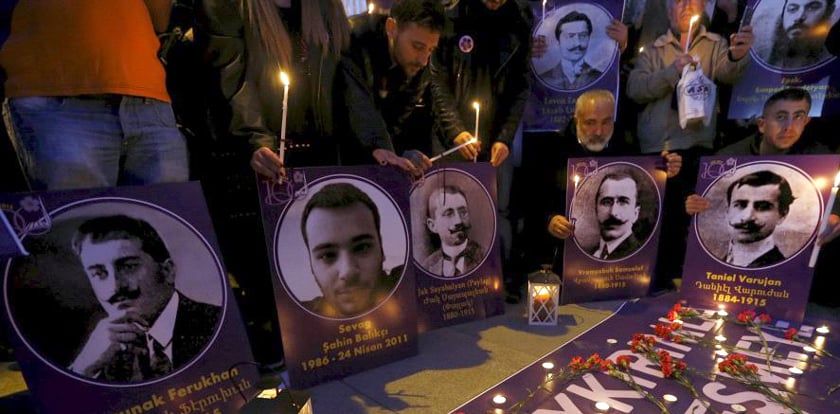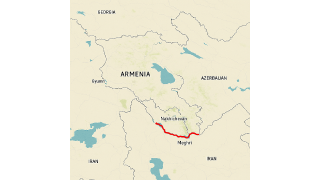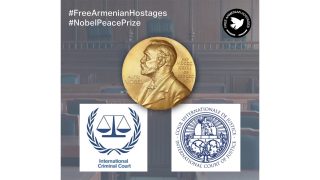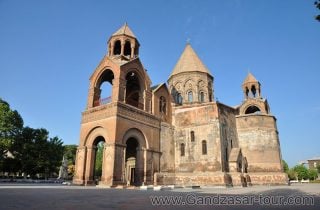
Lost evidence of Armenian Genocide discovered in Jerusalem archive

The telegram, in code, is from Behaeddin Shakir, a high ranking Ottomoan official, to a colleague, inquiring about specifics regarding the deportation and murder of Armenians in eastern Anatolia.
Lost evidence was recently recovered in a Jerusalem archive that researchers have dubbed as “smoking gun” proof of the Armenian Genocide by Ottoman Turkey, the Jerusalem Post reported.
The New York Times reported on Saturday that Taner Akcam, a Turkish historian at Clark University in Worcester, MA, has come upon an original telegram from the military tribunals that initially convicted the genocide’s planners. This key evidence has long been missing, and the lack of original documents, the Times said, is the foundation of the Turkish narrative of denying the genocide.
The telegram, in code, is from Behaeddin Shakir, a high ranking Ottomoan official, to a colleague, inquiring about specifics regarding the deportation and murder of Armenians in eastern Anatolia. A copy of this telegram was used in Shakir’s conviction, shortly before almost all original documents and testimony went missing, forcing scholars to rely on secondary sources for their research on the topic.
According to the Times, Armenian leadership in Istanbul shipped 24 boxes of records to England when Turkish nationalists were seizing control of the country in 1922. The documents then made their way to France in the care of a bishop and finally to the archive of the Armenian Patriarchate of Jerusalem, where they’ve remained since the 1930s, inaccessible to scholars “for reasons that are not entirely clear.”
Akcam came upon photographs of the original telegram in New York, in the possession of the nephew of a now-dead Armenian monk.
Last year, the Israeli Knesset Education, Culture and Sports Committee announced that it recognized the Armenian Genocide.
“It is our moral obligation to recognize the Holocaust of the Armenian nation,” committee chairman MK Ya’acov Margi (Shas) said.
Georgette Avakian, chairwoman of the Armenian National Committee in Jerusalem, told the Knesset committee that after 101 years, the time had come for the Knesset to join parliaments around the world and the 31 countries who have already recognized the Armenian Genocide.
MK Zehava Gal-On (Meretz) who initiated the committee meeting, said that “each year we instill false hope in the people who are sitting here.”
“It dishonors the Knesset to continue to go on and on about this issue, year after year, without reaching a decision that the State of Israel and the Israeli legislature recognize the genocide of the Armenian people.”
Lidar Grave-Lazi and Herb Keinon contributed to this report.























